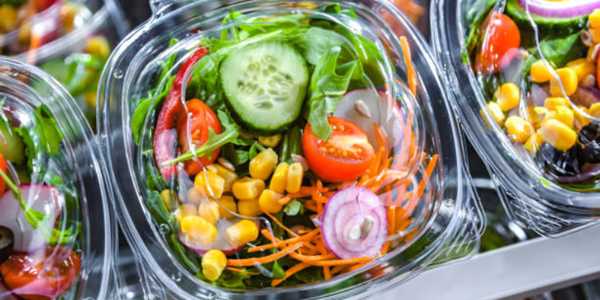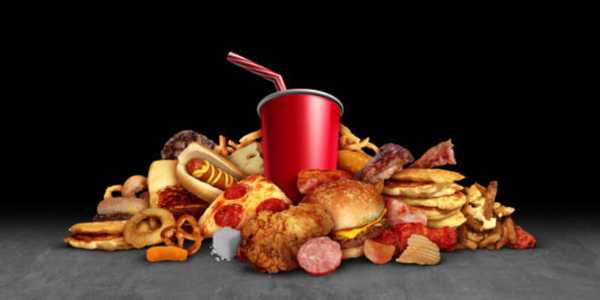The Truth About Processed Foods and Their Impact on Health
Let’s get into something that affects us all—processed foods. Now I know what you’re thinking: “Processed foods? Another lecture about eating healthier?”
Let’s get into something that affects us all—processed foods. Now I know what you’re thinking: “Processed foods? Another lecture about eating healthier?” But hear me out because this isn’t just another rant about kale salads versus pizza slices. Get ready to dive into why processed foods are not the enemy, how they affect our overall health and how to navigate this new world of snacking without feeling guilty!
What Are Processed Foods
First, let’s parse what we mean by “processed foods. At its most basic, “processing” includes any methods of preserving or preparing food, like freezing vegetables or baking bread.
But when most people talk about processed foods, they’re usually referring to highly refined products packed with additives like sugar, salt and preservatives. These are the items lining supermarket shelves—think chips, soda, candy bars and ready-to-eat meals.
But here’s the thing: not all processed foods are bad for you. Some minimally processed options, like canned beans, frozen fruits and pre-cut veggies, can be convenient and nutritious additions to your diet. It’s those ultra-processed ones that tend to raise eyebrows among nutritionists and health enthusiasts.

Why Do We Love Them So Much
Let’s face it—we love processed foods because they’re delicious, affordable and oh-so-convenient. Who hasn’t grabbed a granola bar on the way out the door or munched on a bag of chips after a long day? Manufacturers design these foods to hit all the right pleasure centers in our brains, making them hard to resist. They mix flavors, textures and aromas in ways that make us want more.
But these conveniences have a price. Eating too many ultra-processed foods has been associated with a range of health problems, including obesity, heart disease, diabetes and some cancers. But before we go under the processed food bus, let’s get to why they may be detrimental to us.
Whole Foods vs Processed Foods
Now, let’s look at whole foods vs processed foods. Whole foods are unprocessed, natural foods that have not been significantly altered. Think fresh fruits and veggies, lean proteins, whole grains. Processed foods do not have the same nutrients which whole food have and leading to deficiency over the time.

For example, an apple vs a packaged fruit snack. Both satisfy your sweet tooth but the apple gives you fiber, vitamins and antioxidants for overall health. The fruit snack gives you little nutritional value beyond empty calories and added sugars.
The Bottom Line
So what does this tell us about our day-to-day diets? So should we simply eradicate processed foods? Doesn’t seem that practical for most of us. Instead, moderation is key. Use your judgment in terms of how much and what whilst celebrating the marvelous expanse of modern food but balance it with a sense of well being..
And understanding food labels is key to making informed decisions. Always check the nutrition info panel and ingredient list before buying. If you see a long list of ingredients you don’t recognize or sky high numbers for sugar, fat or sodium, it might be worth reconsidering that choice.
Smarter Choices
Here are a few tips to help you navigate processed foods:
Minimize processed options like frozen produce or canned fish.
Read labels and look for products with shorter ingredient lists.
Limit sugary drinks and snacks.
Add more whole foods to your meals gradually.
Cook at home when you can – it gives you control over ingredients.
Remember, small changes add up over time. You don’t have to overhaul your whole diet overnight; start with one or two changes and build from there.

Get Cooking
Want to reduce your reliance on processed foods? Try using whole ingredients in recipes. Cooking doesn’t have to be complicated or time consuming. For example, instead of buying pre-made pasta sauce, whip up a quick batch with tomatoes, garlic, olive oil and herbs. Not only will it taste better but you’ll know exactly what’s going in your meal.
And hey, if life gets busy and you find yourself reaching for a frozen dinner every now and then, no judgment here! Just remember to balance it out with healthier choices throughout the week.
A Healthy Perspective
Processed food, at the end of the day, aren’t bad, it just requires mindfulness and moderation. Learn how they work and how to sift through the marketing mumbo jumbo and make choices that support your health goals.
So the next time you find yourself standing in a supermarket wondering whether to pick up a head of salad greens or a frozen pizza, remind yourself to allow yourself to indulge sometimes — but that you should also strive to feed your body real food.